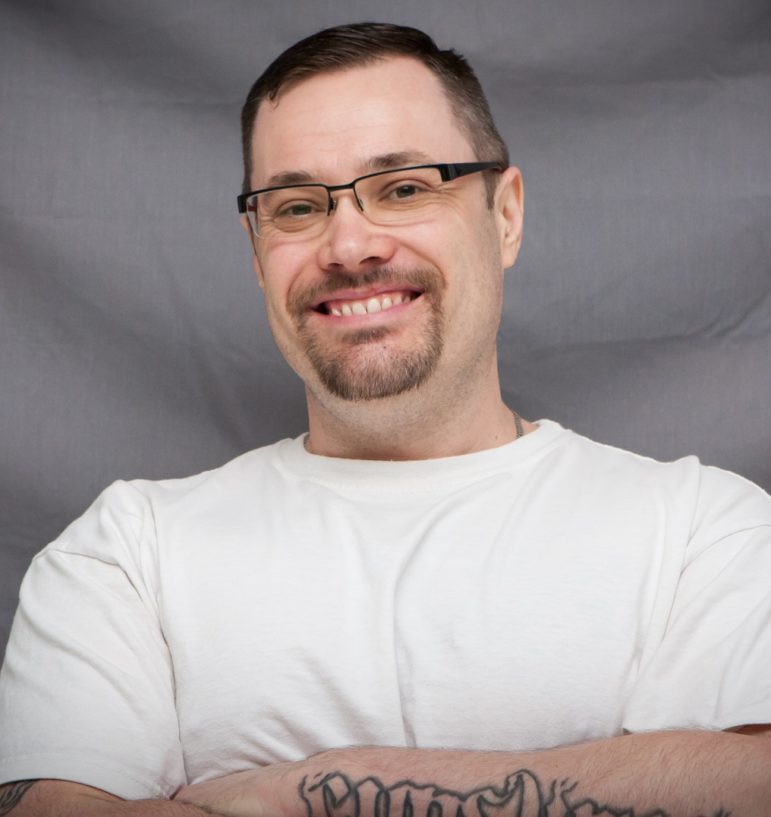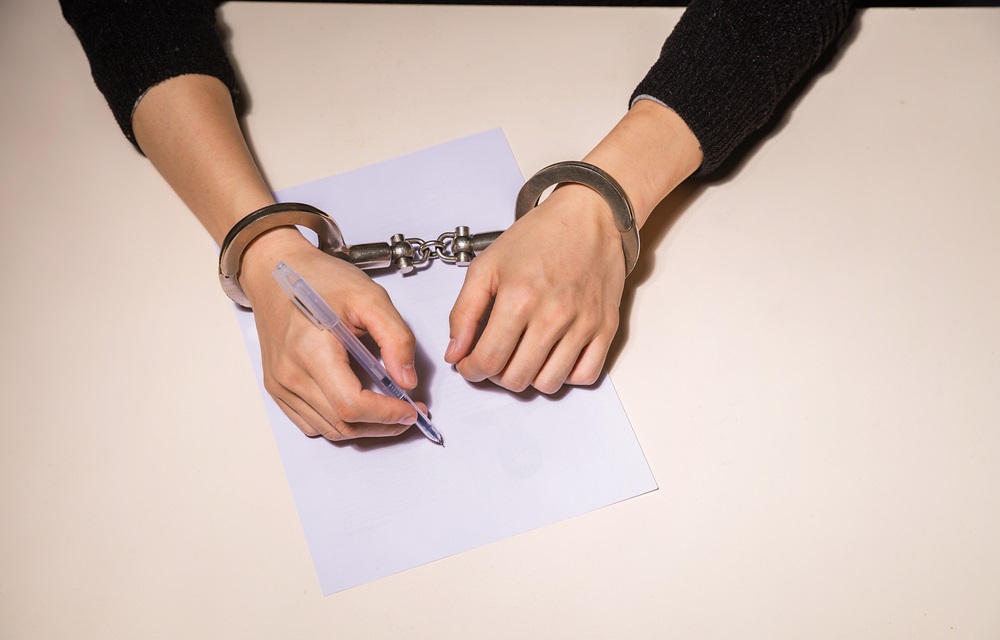![]() "How is this possible?" I ask my friend Felix. There’s a noticeable and rare twist of anger in my voice.
"How is this possible?" I ask my friend Felix. There’s a noticeable and rare twist of anger in my voice.
"You know what to expect,” he says. “When have they ever ruled on the side of the law when it comes to us?" Felix is responding to the news I just shared with him: My case in the Washington State Court of Appeals was denied.
"Yeah, I know! What was I thinking, having hope?"
I want to scream in the justices’ faces, "HOW CAN YOU BE SO DUMB? DON'T YOU UNDERSTAND THE LAW?"
I'm annoyed with myself. I have been involved with the courts since I was 11 years old. The fact that I allowed myself to hope I could receive a fair shot in the courts, well, it pisses me off — I know better. But what hurt the most was listening to my partner cry on the phone while I read the email from my lawyer:
"... the Court of Appeals dismissed our petition ... I could go on and on about how wrong it is, how it misapplies and fails to understand the law, how it's all about wanting you to lose, but the bottom line is I will now take it to the Washington Supreme Court. Hopefully, they have grown uncomfortable with the use and misuse of juvenile convictions ..."
I have been fighting this appeal for over a year, and it seemed like it should be an easy win. The fact is, in my youth I had taken plea deals on several juvenile cases. As part of the pleas, the state stipulated they would not use these cases against me should I find myself in adult court.
No staples, no hope
Unfortunately, I did end up in adult court, due to my poor choices, lack of rehabilitation in the juvenile system and the environment in which I came up. And sure enough, the charges I had received as a juvenile were brought up and used to almost double my sentence.

Christopher Blackwell
I had no idea this sentence enhancement was a clear breach of contract. It was only later, when my family hired a lawyer to review my case that this obvious error was noticed. Equally concerning was that countless other attorneys had never taken the time to notice such a simple — but devastating — error.
The appeals courts dismissed my current case because my judgement and sentence paperwork was not stapled to the motion filed on my behalf. The courts claimed because of this mistake they cannot see where any juvenile points were used to enhance my sentence, therefore dismissing it as only an alleged claim from my lawyer, despite the law being very clear on this matter.
Considering the plea agreement I had struck with the juvenile courts, I believed this mistake would easily be fixed, but this was foolish on my part. Deep down, I know that it didn't matter what my paperwork said. Like they had for so many before me, the Appellate Courts would gloss over the facts and rule against me. It wouldn't matter that the state had breached their contract with me.
Many of us behind these prison walls have been forced to face the reality that the law is not here to help us, only harm us. Even more outrageous, we are expected to understand the law with little to no education around it, in many cases as juveniles.
Plea deal decisions made by kids alone
Before I reached the age of 18, I had been duped into taking a dozen plea deals with no parent or guardian present. Many times, I was told I would be released with time served if I just signed the plea. What kid wouldn't take a deal to go home? At such a young age, who thinks about the future ramifications?
Countless studies around the development of the adolescent brain continue to make it clear those under the age of 25 cannot be expected to make such life choices. Nevertheless, the juvenile courts place this burden on children every single day.
For more information on Juvenile Indigent Defense, go to
JJIE Resource Hub | Juvenile Indigent Defense
My only safeguard was a robotic public defender who was overburdened with too many cases and only looking to clear their own docket. They accomplished this by getting kids like me to take pleas in over 90% of the cases on their caseloads, leaving children to make life-altering decisions without the support or knowledge of an adult who has their best interest at heart.
Looking back, it's hard not to get angry. It's clear that I was harmed by a system that was allegedly put in place to protect me and help rehabilitate me. The fact that I came from a single-parent home in an impoverished community — my life, like the many around me, was expendable — today that is clear.
We were being groomed for a life of imprisonment — sacrificial lambs to the carceral state.
Poor and overpoliced
Currently, I have been in an adult prison for close to 20 years. When I look around, all the faces I saw in the juvenile system are right here in the adult system. It is obvious to me rehabilitation was never a part of the plan while we were going from one juvenile institution to another — often being placed in violent environments, sexually abused, hogtied and countless other horrific situations kids should never endure.
My claim isn't that I'm innocent, or that I am not to blame for the harm I’ve done and choices I've made. I take full responsibility for my bad acts and have done an extensive amount of work, with no help from the system, to understand and accept accountability for my actions. In spite of my crimes, I still have a right, as all Americans do, to a fair and just system. And even more importantly, these rights must be highly protected for the juveniles who enter this system.
Time and time again, courts and legislatures have ruled that the juvenile courts and institutions are not meant to punish those who enter them, but to rehabilitate them. This is the justification for the practice of withholding some due process rights from juveniles who enter courtrooms, like not having the right to a jury trial.
Given how the law is constructed around the juvenile system, juvenile convictions should never be used against someone who is being sentenced in adult court. Without all due process rights afforded by the Constitution and protection of a guardian, this practice is cruel and antithetical to how the system is supposed to work. It’s a brutal tactic to gain power over young people who often come from broken homes and from communities that suffer from poverty and overpolicing.
Since the majority of us who reside within the prison system come from impoverished communities, the ability to gain relief from the courts through resentencing is often virtually impossible. Gaining relief through the courts depends upon one’s ability and resources to navigate the system, leaving most of us unable to access our rights.
If one cannot access their rights, they must simply sit in prison and accept whatever sentence they were given — just or unjust. Resources do not appear from thin air. Fighting one’s case costs tens of thousands of dollars. The recent ruling I received while seeking a just sentence for the crime I committed will cost me and my loved ones money we do not have.
My case is not an outlier. There are hundreds of thousands of individuals who reside behind these walls serving unjustly long sentences who have no means to get back into court. And no redress when they do.
It's hard to just let this loss go and move forward, knowing I was denied relief because my judgement and sentence weren't stapled to the motion filed on my behalf, a simple technicality. Yet, I refuse to just give in. My loved ones and I will find the funds to continue fighting.
Editor's note: Christopher Blackwell was married in the facility on Sept. 18.
Christopher Blackwell, 39, serving a 45-year sentence, is incarcerated at the Washington State Reformatory in Monroe, Washington, and is working toward publishing a book on solitary confinement. His writing has been published by The Marshall Project, BuzzFeed and The Crime Report; and he tweets at ChrisWBlackwell.

Your lawyer is an idiot, and it sounds like, correct me if I am wrong, you are blaming the court for this? I can understand the frustration in dealing with the courts and these lawyers, I was arrested for telling a cop “go fuck yourself” my ‘lawyer’ told me “if you don’t accept this plea deal you will go to prison for a long time” I learned years later that not only was that illegal for my lawyer to say to me, but it was unethical and SHOULD have gotten him disbarred on TOP of the crime I was arrested for was covered under the 1st amendment. But it wasn’t the courts fault that my lawyer was a POS, same as with your lawyers being POS, I had to learn how to file lawsuits just to sue the US government, I won after two years… it took me hundreds of hours to just assert that a right I was born with I still have… Yes the court system needs to be fixed, but more necessary is fixing these @#$@# laws! There are so many of them, it is impossible to understand them all, or even COUNT them all!